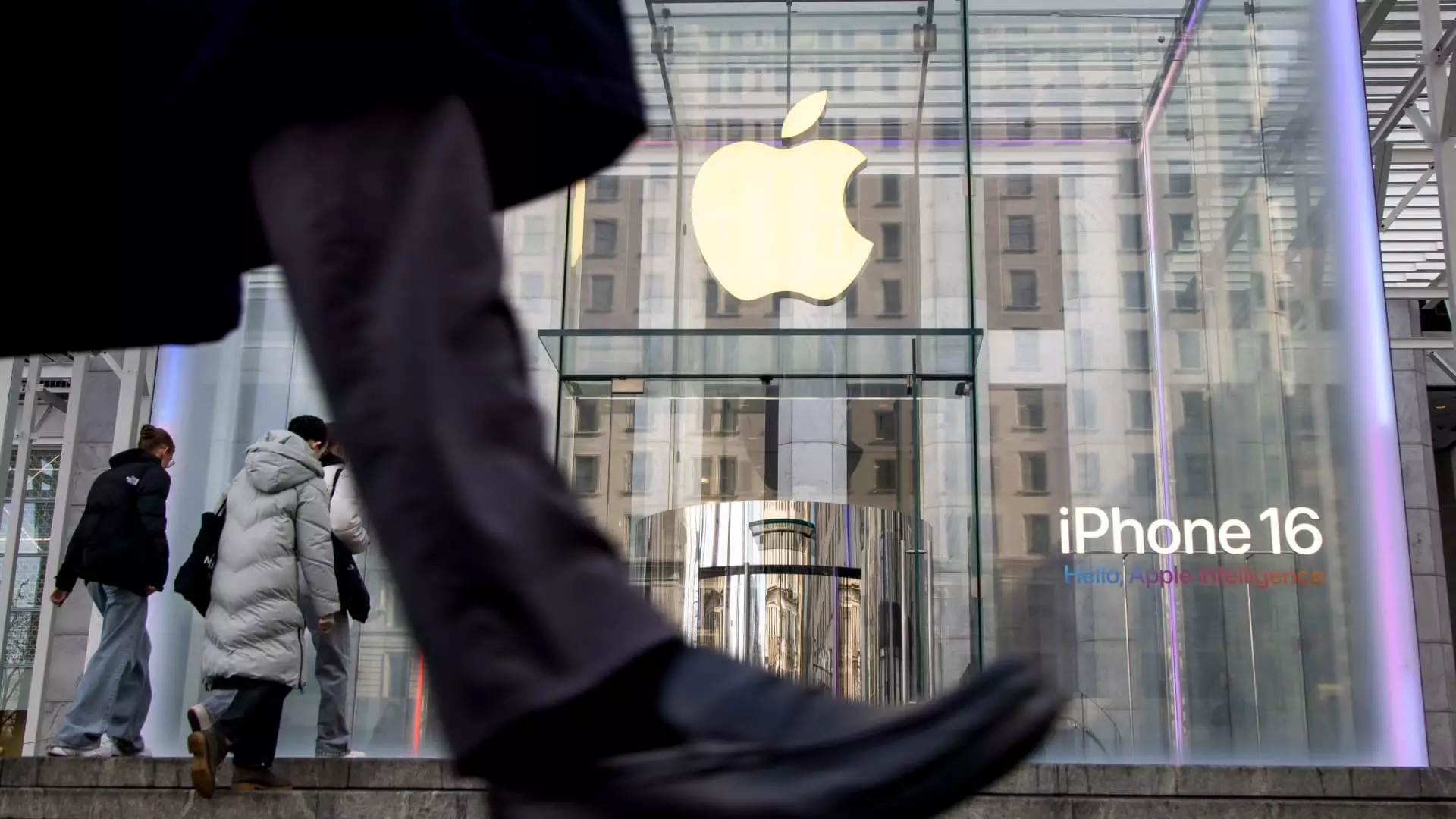In an era marked by political upheaval and economic uncertainty, tariffs are assuming a daunting role in American households. Recent surveys, including a revealing one from NerdWallet, indicate that 85% of Americans now harbor serious concerns about the implications of trade policies. This overwhelming sentiment reflects not just an economic anxiety but also a looming psychological burden that weighs heavily on consumers’ minds. The fear isn’t merely abstract; it materializes in the form of high prices for essentials, threatening both household budgets and economic stability.
As inflationary pressures continue to mount, Americans find themselves on the precipice of a financial crisis. The prevalent question lingers: will we see a recession? The overwhelming response seems to be a reluctant acknowledgment that we might be heading toward one. According to the University of Michigan’s latest consumer sentiment survey, confidence has cratered by over 30% since late last year, which underscores the deepening skepticism among the populace regarding their financial future.
Economic Habits Under Siege
The repercussions of tariffs transcending the markets are evident in consumer behavior. The NerdWallet survey reveals a startling trend: substantial shifts in spending habits as nearly half of Americans (45%) aim to curtail their financial outlay on non-essentials. In an age where “live for today” used to be the mantra, now prudence reigns supreme. People are choosing to save rather than spend, which signals a broader economic malaise. A third of respondents even expressed intentions to cut back on necessities—a stark indicator of how fear can reshape consumer choices, invariably stunting economic growth.
What’s alarming is that the prevailing economic strain has arrived during a period when many individuals were already grappling with financial hardships, particularly in meeting basic needs like groceries. Personal finance expert Kimberly Palmer observes that tariffs exacerbate financial stress, pushing consumers into a corner where they are compelled to make tough choices. These decisions often reflect a broader societal shift away from consumption toward savings, reshaping the very fabric of the American economy.
The Immediate Threat of Stagflation
With experts warning of rising stagflation risks—the ominous combination of stagnant growth and high inflation—consumers’ worries become even more palpable. This unique economic condition could lead to unwelcome scenarios where jobs are lost even as prices remain elevated, further constraining the average household’s financial maneuverability. Financial analyst Stephen Kates emphasizes that emergency savings should be prioritized, suggesting that even in times of crisis, individuals should aim to set aside enough to cover at least a month’s essential expenses.
The implications of this advice extend beyond personal wallets; they illustrate a fundamental shift in societal attitudes toward fiscal responsibility. For some, the idea of saving for retirement might feel out of reach compared to the urgency of establishing an emergency fund. This reorientation of priorities, albeit sensible, paints a grim picture of the American dream—a scenario where savings rates increase not because of financial prudence, but out of sheer necessity.
Strategies for Survival Amid Economic Chaos
For those already inflicted with debt, Kates advocates for the “debt avalanche” strategy—focusing efforts on extinguishing the debt with the highest interest rates while maintaining minimum payments elsewhere. The delinquency associated with tariff impacts might lead many into deeper financial quagmires, underscoring the importance of intelligent debt management. It represents a form of silent warfare being waged on American finances, where each decision carries weighty ramifications.
This strategy, however, must take into account the complexities of modern living. Amidst these economic pressures, it is critical for individuals to stay informed about potential employer contributions toward retirement. While many are grappling with immediate financial realities, the need to retain a long-term vision remains crucial. The balance between short-term survival and long-term plans becomes a delicate dance as Americans move forward amid uncertainty.
In sum, the concerns related to tariffs are not merely economic but deeply intertwined with the emotional fabric of the nation. The pervasive fear of financial instability is reshaping consumer behavior, compelling individuals to make trade-offs that could have far-reaching effects on the economy. The focal point has shifted from growth to survival, signifying a pivotal moment in the American economic psyche.

